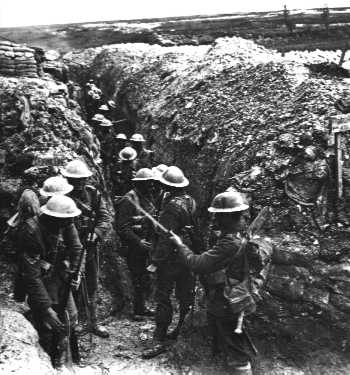Section 6
The Component Concepts of On War and the Offense Defense
Balance
Be able to identify and use the following terms and concepts:
Friction
Strategy
Tactics
Moral Forces
Interior Lines of Communication
Culminating Point of Victory
BONUS: The Principle of Continuity in the Offense
(a.k.a. Exploitation)
NOTE: Discussion may also cover question #4 from the previous
session if necessary.
1. Assess the role
of friction and moral factors in Clausewitz's view of War - give an example
of how each might operate. Is there much to be gained from such intangible
analytical principles beyond the caveat that it is harder to do things
than imagine them or that it is helpful for soldiers to have high spirits?
In other words are friction and moral factors more a concern for the practitioner
(i.e. general) than for the analyst? How do these concepts fit into Clausewitz's
discussion of War as art vs. science? If no laws can be given about War,
then what use is a weaker formulation like method and routine?
2. Clausewitz states, "The
means and forms that the strategist employs are so very simple, so familiar
from constant repetition, that it seems ridiculous in the light of common
sense when critics discuss them, as they do so often, with ponderous solemnity."
How then should the student of political science approach the study of
war? How does Clausewitz feel that knowledge or insight about War can be
gained? Do you feel it is generally more productive for political scientists
to deal with macro concepts and theories - working with historical minutia
only when necessary to inform or confirm a broader perspective - or should
political scientists approach the study of war from the ground up? Likewise
would the in-depth study of a particular war or battle be of greater or
lesser benefit for you given the time it would require?
3. Describe Clausewitz's
conception of the relationship between the attack and defense. How important
are the sub-concepts of counter-attack and the culminating point of victory?
If defense is the stronger form then why does war ever occur? In other
words, why does the attacker bother attacking? When should the attacker
stop attacking? Do you agree with Clausewitz's assessment or do you think
the relationship between the attack and defense runs in the opposite direction
- or does it shift depending on technology, doctrine, etc.?
4. How, if at all,
can one determine if a given military technology or set of technologies
favors the offense or the defense? Is there a difference in this respect
between conventional and nuclear weapons? Should one be more concerned
about subjective perceptions of technologies or objective assessments of
their capability to the extent that the two can be distinguished? Assuming
one can discern the offense-defense balance, what impact will this have
on international relations? Assuming it can be done, will institutionalizing
defense dominance contribute to world peace?
